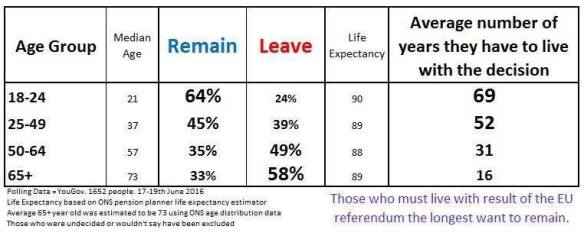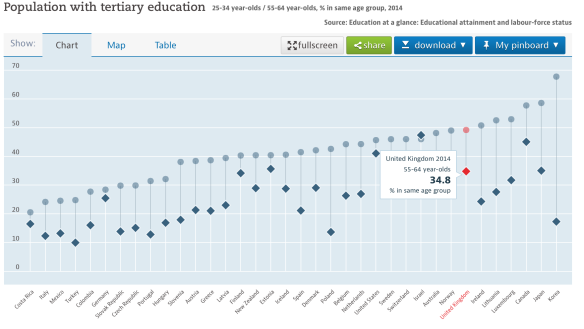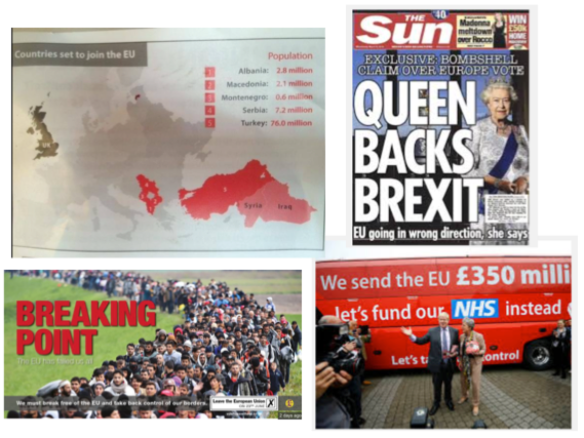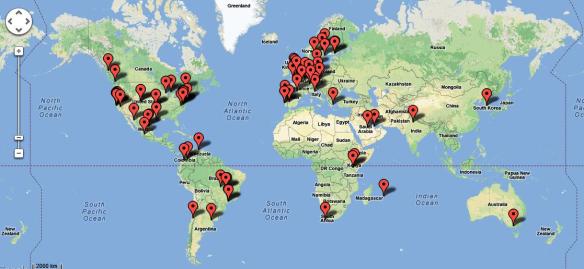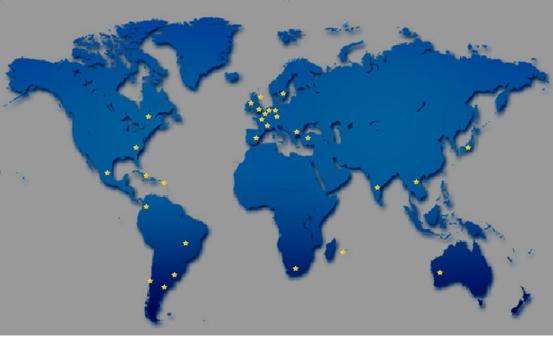As the Bibliography of OER, ROER and related subjects (PART 1) was becoming too long and difficult to manage, here is the second part. Thanks to Tel Amiel @edaberta for sharing this literature in Portuguese.
I will use this second page to add literature about OER in other languages apart from English, so if you know papers written in any language let me know (please add the references in the comments area in APA only) and to avoid confusions please read the following notes
- I’m sure I’m forgetting to add some super important references and key resources, or that there are some mistakes in this post, so, if you are twisting your head around and crawling on the ceiling like Linda Blair because I forgot to add THAT piece of research or because the reference is not correct, please forgive me.
- Please send over only published – peer reviewed articles, as I cannot refer blog posts or other online materials, and make sure you add the link to retrieve the resource. I will give preference to the papers published in Open Access Journals as they are accessible to all…
- If some of the links are broken, sorry for that, you can retrieve it by using to Google Scholar – or your local library system as managing references is like having a leaking ceiling, you fix one hole and starts dripping somewhere else.
- Finally, if you find a paper listed here chained to a paywall journal, first inhale and exhale a few times and contact the author(s) of the paper asking them why? (why, why, why?…) and maybe, ping the paper’s URL to the friends from the Open Access Button – @oa_button to raise awareness about the value of open access and also to highlight the open content / paywalled published contradiction…
Portuguese literature in OER
Abegg, I., Bastos, F. da P. de , Alberti, T. F., & Mallmann, E. M. (2013). MOOC mediado por REA : prática da liberdade nos programas de capacitação continuada no ensino superior. Retrieved from https://repositorioaberto.uab.pt/handle/10400.2/3076
Almeida, Fernando José de , Silva, M. da G. M. da , & Franco, M. M. G. (2012). Materiais mediadores e abertos para construção de conhecimento. Retrieved from http://www.curriculosemfronteiras.org/vol12iss3articles/almeida-silva-franco.pdf
Coelho, D., Balula, A., & Ramos, F. (2014). O uso de recursos educacionais abertos no ensino superior: potencialidade, desafio e oportunidade. Retrieved from http://revistas.ua.pt/index.php/ID/article/view/2688/2544
Alencar, A., & Neto, J. M. (2012). Democratizando o Acesso à Vida e Obra de Paulo Freire: a experiência do Projeto Paulo Freire Memória e Presença. Anais dos Workshops do Congresso Brasileiro de Informática na Educação, 1(1). Retrieved from http://br-ie.org/pub/index.php/wcbie/article/view/1886
Almeida, L. B. de, Merkle, L. E., & Silva, E. A. (2012). Proposta de Fluxo de Trabalho para Organização de Repositórios Abertos de Maneira Colaborativa. Anais dos Workshops do Congresso Brasileiro de Informática na Educação, 1(1). Retrieved from http://br-ie.org/pub/index.php/wcbie/article/view/1885
Amiel, T. (2012). Educação aberta: configurando ambientes, práticas e recursos educacionais. In Recursos Educacionais Abertos: práticas colaborativas e políticas públicas (Vol. 1, pp. 17–34). São Paulo – SP; Salvador- BA. Retrieved from http://livrorea.net.br/livroREA-1edicao-mai2012.pdf
Amiel, T., Orey, M., & West, R. (2010). Recursos Educacionais Abertos (REA): Modelos para localização e adaptação. ETD – Educação Temática Digital, 12(mar.), 112–125. Retrieved from http://www.fae.unicamp.br/revista/index.php/etd/article/view/2284
Amiel, T., & Santos, K. (2013). Uma análise dos termos de uso de repositórios de recursos educacionais digitais no Brasil. Trilha Digital, 1(1), 118–133. Retrieved from http://editorarevistas.mackenzie.br/index.php/TDig/article/view/5892
Arimoto, M. M., & Barbosa, E. F. (2012). Um conjunto preliminar de práticas para o desenvolvimento ágil de recursos educacionais abertos. Anais dos Workshops do Congresso Brasileiro de Informática na Educação, 1(1). Retrieved from http://www.br-ie.org/pub/index.php/wcbie/article/view/1888
Barin, C. S., Müller, L., & Ellensohn, R. M. (2012). Construção de significados e interação com, no e pelo computador: Estudos problematizados no AVEA Moodle sobre uso das tecnologias da informação e comunicação. RENOTE, 10(1). Retrieved from http://seer.ufrgs.br/renote/article/view/30881
Bassani, P. B. S., & Barbosa, D. N. F. (2012). Uma experiência envolvendo o desenvolvimento de recursos educacionais digitais sob a perspectiva da atividade. RENOTE, 10(3). Retrieved from http://seer.ufrgs.br/renote/article/view/36399
Brito, B. M. S. de. (2010). Propriedade intelectual nas escolas. In Anais do XXXIII Encontro da ANPED (p. 14). Caxambu, MG: 33. Retrieved from http://www.anped.org.br/33encontro/app/webroot/files/file/Trabalhos%20em%20PDF/GT16-6169–Int.pdf
Castro, J. B. de, Souza, M. de F. C. de, Luiz, A. G., & Filho, J. A. de C. (2012). Localização de Recursos Educacionais Digitais Americanos para o Ensino de Matemática no Contexto Brasileiro. Anais dos Workshops do Congresso Brasileiro de Informática na Educação, 1(1). Retrieved from http://br-ie.org/pub/index.php/wcbie/article/view/1891
Declaração da Cidade do Cabo. (2007). Declaração de cidade do cabo para educação aberta: Abrindo a promessa de recursos educativos abertos. Retrieved from http://www.capetowndeclaration.org/translations/portuguese-translation
Dutra, R. L. de S., & Tarouco, L. M. R. (2011). Recursos Educacionais Abertos (Open Educational Resources). RENOTE, 5(1). Retrieved from http://seer.ufrgs.br/renote/article/view/14171
Educação Aberta. (2011). Recursos Educacionais Abertos (REA): Um caderno para professores. Campinas, SP: Educação Aberta. Retrieved from http://www.educacaoaberta.org/wiki
Ferreira, G. M. dos S. (2012). De conteúdo a recurso, prática e pedagogia: sobre o movimento REA e suas ramificações. Revista Educação e Cultura Contemporânea, 9(18), 20–37. Retrieved from http://periodicos.estacio.br/index.php/reeduc/article/view/432
Galvão, M. C. A., & Leite, L. S. (2011). Educopédia: uma experiência em construção. Retrieved from http://www.abed.org.br/congresso2011/cd/165.pdf
Gohn, D. M. (2012, September 3). Educação musical à distância: Propostas para ensino e aprendizagem de percussão (Tese de Doutorado). Retrieved from http://www.teses.usp.br/teses/disponiveis/27/27154/tde-13042010-225230/pt-br.php
Gonsales, P. (2012). Aberturas e rupturas na formação de professores. In Recursos Educacionais Abertos: práticas colaborativas e políticas públicas (Vol. 1, pp. 143–152). São Paulo – SP; Salvador- BA. Retrieved from http://livrorea.net.br/livroREA-1edicao-mai2012.pdf
Gonzalez, C., & Rossini, C. (2012). REA: o debate em política pública e as oportunidades para o mercado. In Recursos Educacionais Abertos: práticas colaborativas e políticas públicas (Vol. 1, pp. 35–70). São Paulo – SP; Salvador- BA. Retrieved from http://livrorea.net.br/livroREA-1edicao-mai2012.pdf
Gosciola, V., & Versuti, A. (2012). Narrativa transmídia e sua potencialidade na educação aberta. In A. Okada (Ed.), Recursos educacionais abertos e redes sociais: Co-aprendizagem e desenvolvimento profissional. Londred: CoLearn/Open University. Retrieved from http://oer.kmi.open.ac.uk/?page_id=428ID – 8
Hinckel, N. C. (2011). Os recursos educacionais abertos e materialização do sujeito leitor aprendente no projeto openlearn da Open University. Retrieved from http://aplicacoes.unisul.br/pergamum/pdf/103821_Nagila.pdf
Jordão, T. C. (2009). Recursos digitais de aprendizagem . Retrieved from http://tecnologiasnaeducacao.pro.br/revista/a1n1/art11.pdf
Laaser, W., Rodrigues, R. S., & Fachin, G. R. B. (2012). Educação a distância e Recursos Abertos. Retrieved from Almeida, Leandro Batista de, Luis Ernesto Merkle, and EdsonArmando Silva. 2012. “Proposta de Fluxo de Trabalho para Organização de Repositórios Abertos de Maneira Colaborativa.” Anais dos Workshops do Congresso Brasileiro de Informática na Educação 1(1). Retrieved April 1, 2013 (http://br-ie.org/pub/index.php/wcbie/article/view/1885).
Mallmann, Elena Maria et al. 2013. “Potencial dos Recursos Educacionais Abertos para integração das tecnologias e convergência entre as modalidades na UFSM.” Retrieved (http://www.reveduc.ufscar.br/index.php/reveduc/article/viewFile/742/274).
Mesquita, Ofélia Alencar de, and José Aires de Castro Filho. 2012. “A construção de conteúdos Educacionais Digitais 2.0 sob enfoque da múltipla autoria.” Anais dos Workshops do Congresso Brasileiro de Informática na Educação 1(1). Retrieved April 1, 2013 (http://br-ie.org/pub/index.php/wcbie/article/view/1890).
Moon, Bob. 2008. “O papel das novas tecnologias da comunicação e da educação a distância para responder à crise global na oferta e formação de professores: uma análise da experiência de pesquisa e desenvolvimento.” Educação & Sociedade 29(104):791–814. Retrieved May 16, 2013 (http://www.scielo.br/scielo.php?script=sci_arttext&pid=S0101-73302008000300008&lng=pt&nrm=iso).
Starobinas, Lilian. 2012. “REA na educação básica: a colaborção como estratégia de enriquecimento dos processos de ensino-aprendizagem.” Pp. 121–32 in Recursos Educacionais Abertos: práticas colaborativas e políticas públicas, vol. 1. São Paulo – SP; Salvador- BA. Retrieved (http://livrorea.net.br/livroREA-1edicao-mai2012.pdf).http://www.rieoei.org/deloslectores/2879.pdf
Silva, M. A. G. (2012, December 6). LOD: Uma abordagem para desenvolvimento de objetos de aprendizagem multimídia e interativos (Tese de Doutorado). Retrieved from http://www.teses.usp.br/teses/disponiveis/55/55134/tde-06122012-162839/pt-br.php
Simon, I., & Vieira, M. S. (2008). O rossio não-rival. In Além das redes de colaboração: internet, diversidade cultural e tecnologias do poder (pp. 15–30). Salvador, Bahia: UFBA. Retrieved from http://books.scielo.org/id/22qtc
Souza, M. de F. C. de. (2012). Customização Guiada: uma estratégia orientada a modelos para produção de objetos de aprendizagem. Retrieved from http://capesdw.capes.gov.br/capesdw/resumo.html?idtese=20121222001018048P5
Souza, M. de F., Filho, J. A. de C., & Andrade, R. (2012). Ampliando a Autonomia Docente com o Uso de Objetos de Aprendizagem Customizáveis. Anais dos Workshops do Congresso Brasileiro de Informática na Educação, 1(1). Retrieved from http://br-ie.org/pub/index.php/wcbie/article/view/1897
Tarouco, L. M. R., Schmitt, M. A. R., Rodrigues, A. P., & Viccari, R. M. (2010). Gestão colaborativa de conteúdo educacional. RENOTE, 7(1). Retrieved from http://seer.ufrgs.br/renote/article/view/13975
